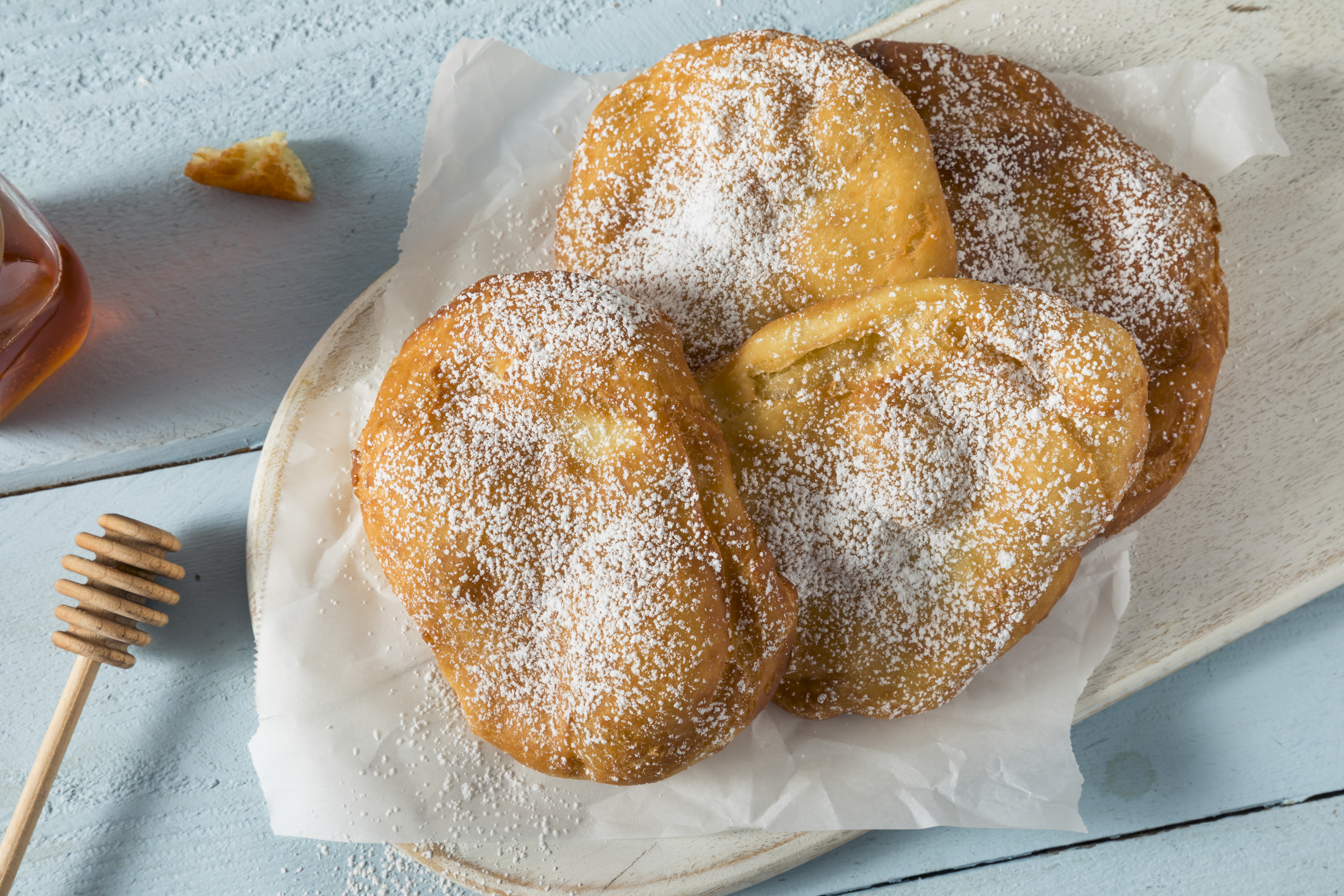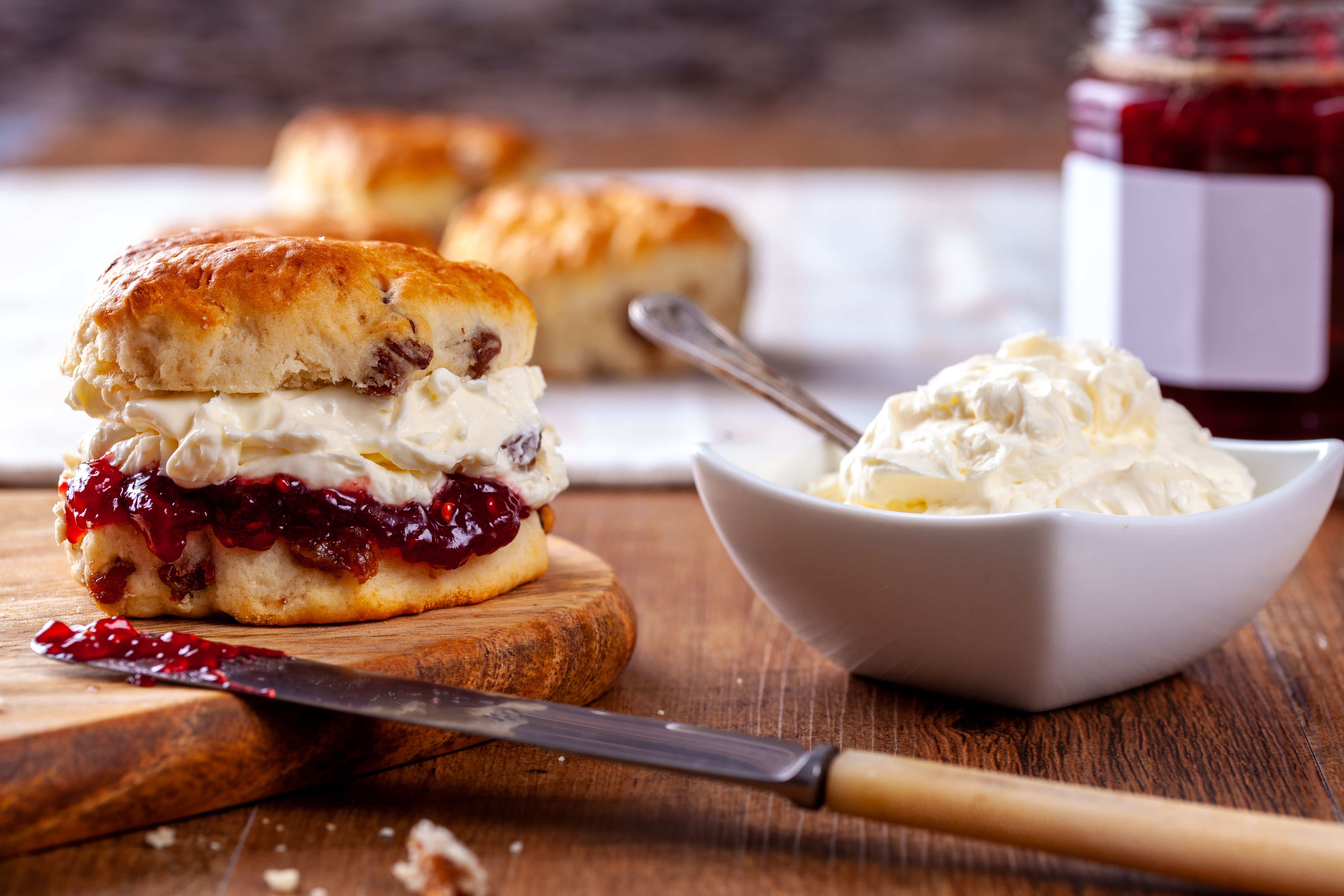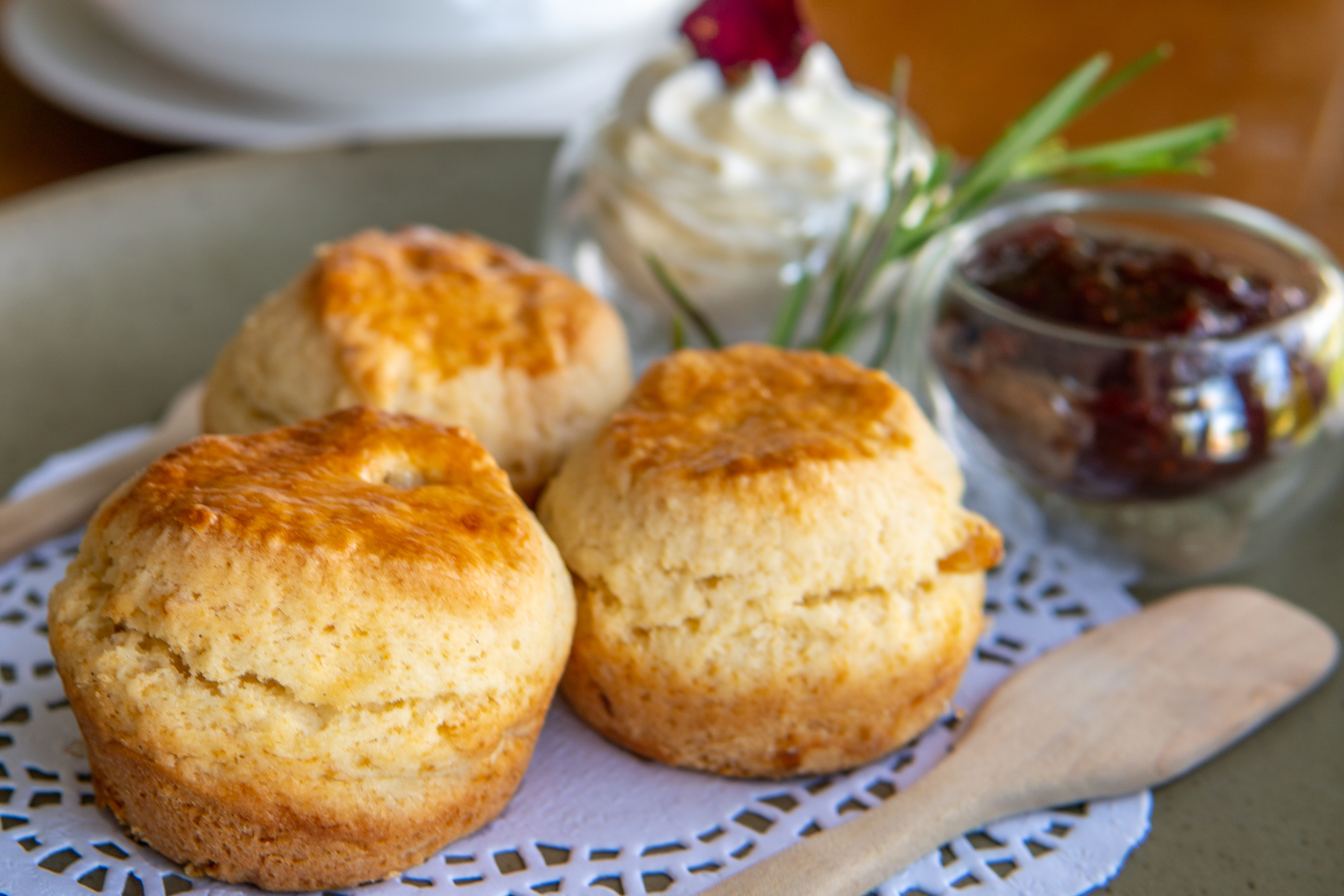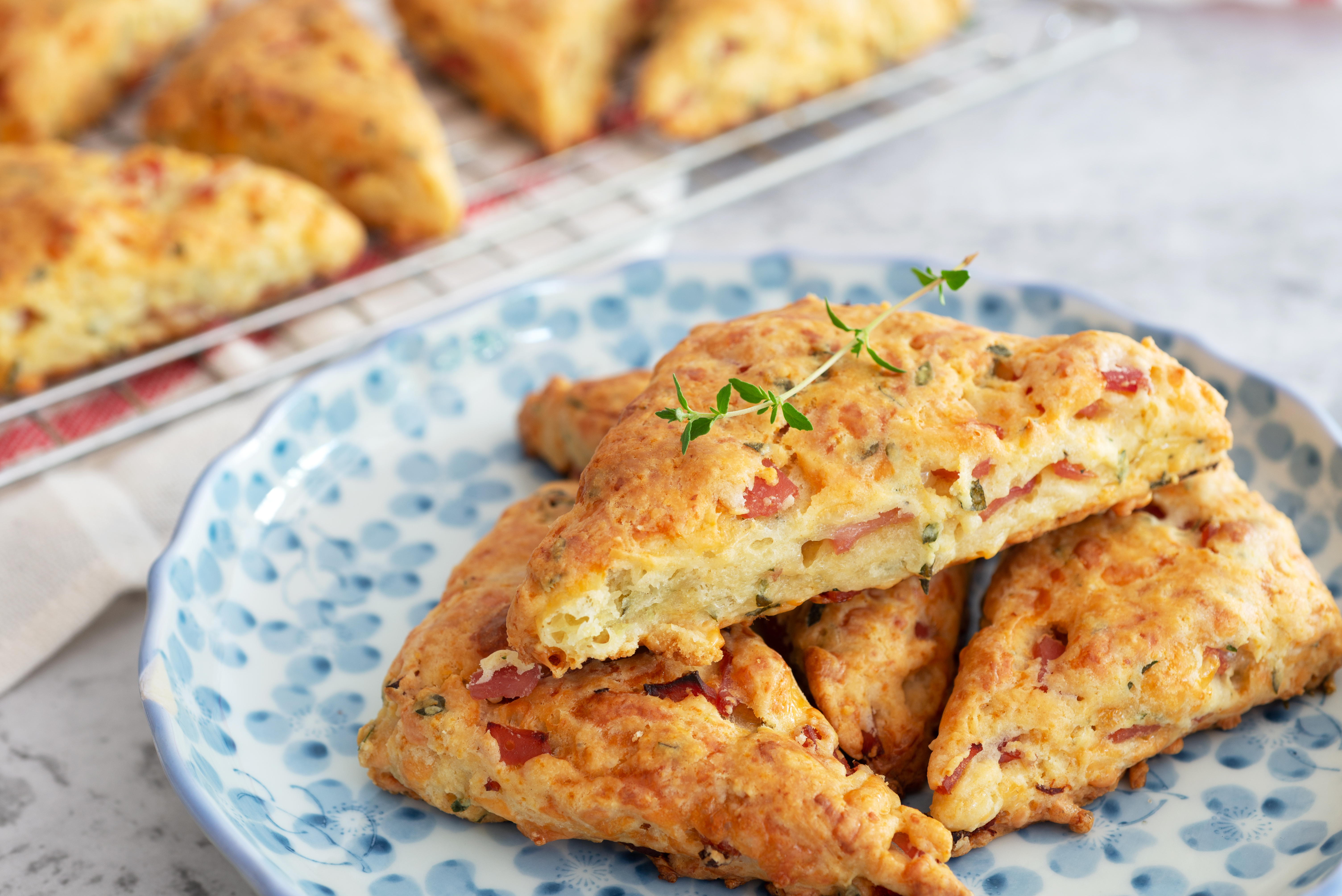The History of Scones and The 7 Most Mouth-Watering Scones Ever!
If you’ve ever had scones before, then you know that they are a delicious, delightful way to begin your day, a great midday snack, or even a dessert. However, some of you may be asking exactly what a scone is; a scone is a pastry that is either made from oatmeal or wheat with baking powder used in them as a leavening agent. Scones more often than not have fruit in them, they’re normally slightly sweetened, and sometimes they’re glazed with an egg white wash. Although they may appear to be similar to what Americans call biscuits, they are not. Scones are made with eggs, and are more dense and dry while biscuits are more moist and flaky.

The History of Scones
Scones originated in Scotland as early as 1505 according to most. They were originally made as a quick bread cooked with oats and then baked on a griddle. There are a couple of different origin stories of how the scone got its name, but the one that is most widely accepted is the story that refers to the Stone of Destiny, which is where the Kings of Scotland were coronated. The other story is that the word scone was adapted from the Dutch word schoobrot, which translates to “beautiful bread.”
Even though the earliest scones have been traced back to the early 1500s, they didn’t take off in popularity until almost two hundred years later. It was the early 1800s and the Duchess of Bedford, Anna, requested her tea later in the afternoon and asked her servants to bring some sweetbreads as well, and scones just happened to be one of them. She ended up being the one who started the tradition of England’s “Afternoon Tea,” which is usually around four in the afternoon because this arrangement ended up working so well for her. Scones became a favorite with her afternoon tea, normally served with clotted cream and jam.
Scones Around the World
Bear in mind that each place pronounces the word “scone” quite differently! Also, depending on where you are maybe the deciding factor of what you get when you order a scone. For example, in Britain, your scone will most likely be slightly sweet, however, they serve savory scones as well. Things that may be added before the scones are baked include currants, raisins, dates, or cheese.
However, in their home of Scotland, you might be served a soda scone, also known as soda farls, potato scones, or tattie scones. A tattie scone is like a thin pancake that is made from potato flour, and is normally fried and served as a breakfast item.
In Ireland, their scones normally contain sultanas, and although they are made from dried grapes just like raisins are, sultanas are not raisins. Raisins come from naturally dried grapes, while sultanas come from first dipping the grape in vegetable oil and acid, then drying.
Hungarians enjoy their own take on the scone, which is called pogácsa, and it is normally savory and served with toppings such as cheese or dill. The German version of the pastry is similar and is called the pogatsche. Griddle scones, called girdle scones in New Zealand as well as Scotland, are cooked on a stove-top griddle as opposed to being baked in the oven.
If you’re in Australia, you might end up with a pumpkin scone, which is made by adding mashed, cooked pumpkin into the scone mix. However, you could also get a Date scone, another favorite of the Australians. During colder weather months, they make scones that are deep-fried or fried up in a pan called puftaloons.
American scones, while similar to our biscuits, are made with cold butter and are a bit sweeter than their overseas counterparts. In America, scones are popular in coffee houses and more often than not have fruit, nuts, chocolate, and different spices in them.
Scones were brought to South America by British immigrants, and they are especially popular in Argentina and Uruguay. If you ask for a scone here, it is traditionally served with tea, coffee, or a caffeinated drink called mate.

The Most Mouth-Watering Scones to Try
Whether you’ve never had a scone in your life and you’re now dying to try one, or if you’re looking for new scone flavor possibilities, then check out the list of our seven favorites, most mouth-watering scones that you really need to try! The best part? You can make these scones in the comfort of your own kitchen!
Blueberry Scones
There is just something wonderful about the combination of moist, delicious scones, tangy blueberries, and some lemon zest that makes a beautifully scrumptious addition to afternoon tea or your morning coffee.

Strawberries and Cream Scones
If you’re a fan of the sweet flavor combination of strawberries and cream, then you will absolutely love this scone. Warm and filled with delicious strawberries and cream, you’ll have a hard time stopping at just one!
Lavender Scones
High-end lavender scones are fragrant and make an elegant addition to tea parties, wedding showers, and even baby showers. Garnish a serving tray full of scones with lavender sprigs for an extra bit of flair.

Ginger-Orange Scones
Ginger-Orange scones have ginger crystals and candied orange peels mixed into the scone batter, offering a pop of bright, citrusy flavor that when warm goes wonderfully with a nice cup of tea.
Hazelnut Chocolate Chip Scones
Chocolate and hazelnut are a winning flavor combination, especially when it comes to warm, moist scones. These scones pair great with a hot cup of coffee.

Cheese Scones
Let’s take a detour from the sweet scones and go to the savory side with cheese scones. These are a favorite snack in Britain and are great for brunch or a snack.
Sun-Dried Tomato Scones
Another savory and more unique scone option, sun-dried tomato scones are made with tomato relish, goat’s cheese, and a bit of chili for a savory brunch or midday snack option.
All around the world, scones have become quite a popular choice for snacks, light meals, and the sweet ones make great desserts as well. So be sure to try some of our choices for the most mouth-watering scones to try if you haven’t already!